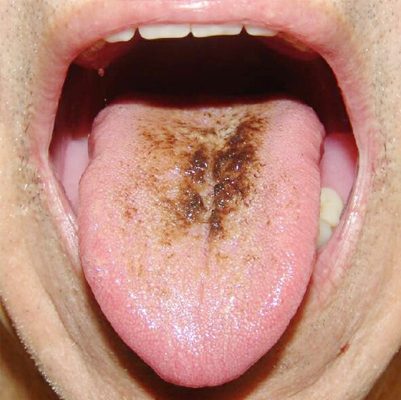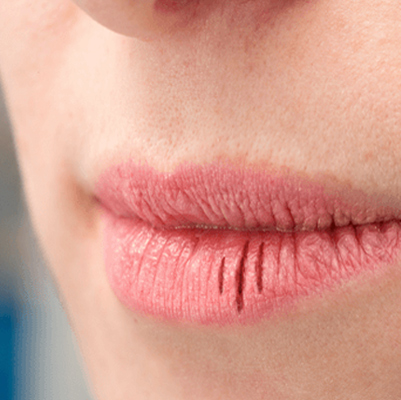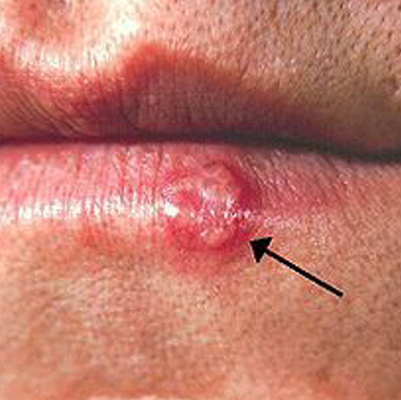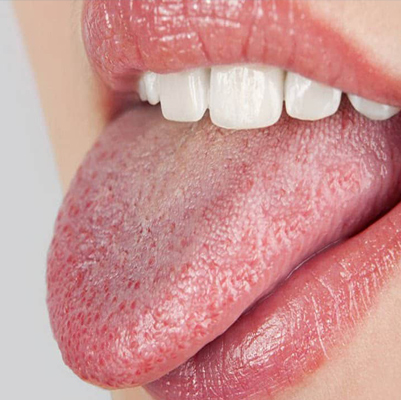Bad Breath
Halitosis
Bad Breath (Halitosis) – Spaks Homeopathy Overview
Bad breath, also called halitosis, can be embarrassing and may even cause social anxiety. While many people rely on mouthwashes, mints, or chewing gum, these solutions only mask the problem temporarily and do not address the root cause.
Halitosis usually occurs due to sulphur-producing bacteria that live on the tongue surface and in the throat. When these bacteria break down proteins rapidly, they release volatile sulphur compounds (VSCs) that cause foul odor.
Important to note: Halitosis is not contagious, but it affects nearly 2.4% of adults worldwide.
Common Symptoms of Halitosis
-
White coating on the back of the tongue
-
Dry mouth (lack of saliva)
-
Plaque or build-up around teeth
-
Post-nasal drip or thick mucus
-
Morning bad breath and burning tongue
-
Constant need to clear throat
-
Sour, bitter, or metallic taste in the mouth
Spaks Homeopathy Approach
At Spaks Homeopathy, we believe in treating halitosis from the root cause, not just masking the odor.
Remedies target bacterial imbalance
mprove digestion and oral health
Relieve dryness and post-nasal drip
Provide safe, side-effect-free, long-lasting relief
With personalized homeopathic care, you can enjoy fresh breath, renewed confidence, and better oral hygiene — naturally.
Do you want me to make this into a short and catchy social media caption with emojis (for Instagram/Facebook), or keep it as a detailed clinic handout?

Black Hairy Tongue
Overview
Black hairy tongue could be a temporary, harmless oral condition that provides the tongue a dark, hairy look.
The distinct look sometimes results from a buildup of dead skin cells on the various little projections (papillae) on the surface of the tongue that contain style buds.
These papillae, that area unit longer than normal, will simply entice and be stained by microorganism, yeast, tobacco, food or different substances.
Although black side effect might look dreadful, generally it does not cause any health issues, and it has always painless.
Black side effect typically resolves by eliminating doable causes or conducive factors and active smart oral hygiene.
Symptoms
Black discoloration of the tongue, though the colour is also brown, tan, green, yellow or white.
A hairy or furry appearance of the tongue
Altered taste or metallic taste in your mouth
Bad breath (halitosis)

Drooling / Ptyalism
Overview
Down syndrome is a genetic condition and the most common chromosomal abnormality in humans. It occurs when an individual has an extra copy of chromosome 21, which affects the development of the embryo and fetus. This additional genetic material results in both physical features and intellectual disabilities, though the severity of symptoms can vary widely from person to person.
Symptoms
-
Small head and short neck
-
Flat facial profile with upward-slanting eyes
-
Low-set, small ears
-
Protruding tongue that may appear too large for the mouth
-
Short hands with broad palms and a single crease across the palm
-
Short fingers and flexible joints
-
Poor muscle tone (hypotonia)
-
Developmental delays in speech, motor skills, and learning
Effects
-
Intellectual disability ranging from mild to moderate
-
Slower physical growth and developmental milestones
-
Higher risk of heart defects, vision problems, and hearing loss
-
Greater chance of infections due to weak immunity
-
Possible thyroid disorders, obesity, and signs of early aging
-
Emotional and social challenges, though many children with Down syndrome are loving, cheerful, and interactive
Homeopathic Treatment (By Spaks)
Although Down syndrome cannot be “cured” because it is a genetic condition, homeopathy can provide supportive care by managing associated symptoms like weak muscles, delayed growth, frequent infections, and behavioral difficulties. The aim is to strengthen immunity, support development, and enhance quality of life in a safe and holistic manner.
Commonly used remedies (based on symptoms):
-
Calcarea Carbonica – for delayed milestones, weak muscles, and frequent colds
-
Baryta Carbonica – for slow physical and mental development
-
Tuberculinum – for low immunity and recurrent infections
-
Silicea – for poor nutrient absorption and weak constitution
-
Carcinosinum – for emotional balance and behavioral improvement

Dry Mouth
Dry Mouth (Xerostomia)
Overview
Dry mouth, medically known as xerostomia, occurs when the salivary glands in your mouth don’t produce enough saliva to keep it moist.
It is most commonly caused by:
-
Side effects of certain medications (antidepressants, antihypertensives, antihistamines, etc.)
-
Aging-related changes in salivary gland function
-
Radiation therapy for head and neck cancers
-
Autoimmune conditions like Sjögren’s syndrome
Saliva plays a vital role in:
-
Preventing tooth decay (neutralizing acids and washing away food particles)
-
Controlling bacterial growth in the mouth
-
Enhancing taste, chewing, and swallowing
-
Aiding digestion with enzymes
Reduced saliva may range from a mild inconvenience to a serious condition that affects oral health, digestion, appetite, and overall well-being.
Symptoms
Common signs and symptoms of dry mouth include:
-
Persistent dryness or sticky feeling in the mouth
-
Thick, stringy saliva
-
Bad breath (halitosis)
-
Difficulty in chewing, swallowing, or speaking
-
Dry or sore throat and hoarseness
-
Grooved or dry tongue
-
Altered or reduced sense of taste
-
Discomfort while wearing dentures
Effects
If left untreated, dry mouth may lead to:
-
Tooth decay and gum disease
-
Mouth sores and oral infections (such as thrush)
-
Difficulty eating, poor nutrition, and weight loss
-
Speech problems and reduced confidence
-
Increased risk of choking due to swallowing difficulties
Treatment & Management
General Care
-
Stay hydrated by sipping water frequently
-
Chew sugar-free gum or suck on sugar-free lozenges to stimulate saliva
-
Avoid alcohol, caffeine, and tobacco, as they worsen dryness
-
Use alcohol-free mouthwashes designed for dry mouth
-
Maintain good oral hygiene to prevent cavities and gum disease
-
Use a humidifier at night to keep air moist
Medical Treatment
-
Artificial saliva substitutes (sprays, rinses, or gels)
-
Medications to stimulate saliva production (e.g., pilocarpine – in conventional treatment)
-
Treating underlying conditions (autoimmune disease, medication side effects, etc.)
Homeopathic Treatment (By Spaks)
Homeopathy focuses on improving saliva secretion, reducing burning, and preventing oral infections, while enhancing overall comfort.
Common remedies (based on symptoms):
-
Bryonia Alba – for extreme dryness of mouth and lips, with thirst for large sips of water
-
Nux Moschata – for intense dryness of mouth and tongue, even with plenty of saliva
-
Pulsatilla – for dry mouth with bad taste and digestive problems
-
Mercurius Solubilis – for dry mouth with offensive odor and thick saliva
-
Kali Bichromicum – for stringy, sticky saliva with throat dryness

Dysgeusia
Dysgeusia
Overview
Dysgeusia is a condition characterized by a distortion in the sense of taste. It is often associated with:
-
Ageusia – a complete loss of taste (rare), and
-
Hypogeusia – reduced taste sensitivity.
Since about 75% of taste perception comes from smell-related nerve cells, many people with dysgeusia also experience changes in their sense of smell.
Taste and smell work together to create flavor. While our taste buds recognize the four basic sensations – sweet, salty, sour, and bitter – the more subtle flavors in food come from the sense of smell.
People with dysgeusia may notice a bad taste, altered taste, reduced ability to taste, or in rare cases, complete loss of taste.
Signs & Symptoms
-
Persistent bad taste in the mouth (metallic, salty, or bitter)
-
Reduced ability to taste food or drinks
-
Complete loss of taste (rare)
-
Dry mouth (xerostomia)
-
Nausea or changes in appetite
-
Altered sense of smell (sometimes accompanying the taste disturbance)
Effects
-
Loss of appetite and poor nutrition due to altered food perception
-
Emotional stress or irritability because food no longer tastes “normal”
-
Reduced quality of life, especially in people who enjoy cooking or dining
-
May signal underlying conditions like infections, nerve disorders, nutritional deficiencies, or side effects of medications
Homeopathic Treatment (By Spaks)
Homeopathy focuses on correcting underlying imbalances that cause distorted taste perception. Treatment is individualized, targeting causes such as dry mouth, infections, or nerve sensitivity.
Commonly prescribed remedies:
-
Mercurius Solubilis – for metallic taste with salivation and bad breath.
-
Pulsatilla – when taste alternates, often associated with loss of smell and digestive upset.
-
Nux Vomica – for bitter or sour taste, often worsened by spicy food, alcohol, or medication use.
-
Carbo Vegetabilis – for foul taste with bloating, indigestion, or gastric discomfort.
-
Phosphorus – for loss of taste with recurrent infections or burning sensations.

Herpes Labialis
Overview
Recurrent herpes labialis, commonly known as oral herpes or cold sores, is an infection caused by the herpes simplex virus (HSV-1). It is a very common and contagious condition that usually affects the lips, mouth, tongue, or gums.
After the first infection, the virus does not completely go away. Instead, it remains dormant in the nerve cells of the face. Later in life, certain triggers may reactivate the virus, leading to recurrent outbreaks of blisters and sores. These are often called cold sores or fever blisters.
Symptoms / Triggers
An outbreak can be triggered by:
-
Fever or illness
-
Menstruation
-
High stress levels
-
Fatigue or lack of sleep
-
Hormonal changes
-
Upper respiratory infections (like colds or flu)
-
Exposure to extreme heat or cold
-
Weakened immune system
-
Recent dental work or surgery
During an outbreak, a person may experience:
-
Tingling, itching, or burning around the lips before blisters appear
-
Painful, fluid-filled blisters on or around the lips, mouth, or gums
-
Crusting and healing of sores after a few days
Effects
-
Discomfort, pain, and irritation during eating or talking
-
Embarrassment or emotional stress due to visible sores
-
Risk of spreading the infection to others through close contact (kissing, sharing utensils, etc.)
-
In rare cases, complications like eye infections (herpes keratitis) or severe illness in people with very weak immunity
Treatment
While there is no permanent cure for herpes simplex, treatments can help shorten outbreaks, ease symptoms, and reduce recurrence:
1. Conventional Treatments
-
Antiviral medications (Acyclovir, Valacyclovir, Famciclovir) – help speed healing and prevent frequent outbreaks.
-
Topical antiviral creams – applied directly on blisters to reduce pain and healing time.
-
Pain relief – over-the-counter painkillers or soothing gels can help with discomfort.
2. Home & Lifestyle Care
-
Keep the affected area clean and dry.
-
Apply cold compresses to reduce pain and swelling.
-
Avoid kissing or sharing utensils during outbreaks.
-
Use sunscreen on lips to prevent sun-triggered recurrences.
-
Manage stress and get enough rest.
3. Homeopathic Approach (supportive care)
-
Natrum muriaticum – for recurrent cold sores linked to stress or sun exposure.
-
Rhus toxicodendron – when blisters are very painful and itchy.
-
Graphites – for cracked, oozing sores around the lips.
(Note: Homeopathic remedies should be taken under the guidance of a qualified practitioner.)

Speech Disorders
Overview
Dysarthria is a motor speech disorder caused by weakness, paralysis, or lack of coordination of the muscles used for speech, including those in the mouth, face, or respiratory system.
-
People with dysarthria often know what they want to say but cannot clearly articulate it.
-
It can occur due to neurological disorders, stroke, brain injury, Parkinson’s disease, or muscular disorders.
-
Dysarthria can lead to communication difficulties and affect social interaction.
Symptoms
-
Slurred or slow speech
-
Repeating sounds or words
-
Elongating words
-
Jerky or irregular speech patterns
-
Involuntary movements while talking, often involving the head
-
Frequent blinking or facial tics during speech
-
Weak or quiet voice
-
Difficulty controlling pitch or volume
Effects / Complications
-
Difficulty communicating, leading to frustration
-
Reduced social interaction and isolation
-
Low self-esteem or embarrassment
-
Depression or anxiety due to speech limitations
-
Challenges in work or school performance
Treatment
1. Speech Therapy
-
Work with a speech-language pathologist to improve articulation, pace, and clarity
-
Techniques include breath control, voice exercises, and muscle strengthening
2. Assistive Devices
-
Communication boards, text-to-speech devices, or apps for severe cases
3. Medical or Surgical Treatment
-
Address underlying causes, e.g., medication for Parkinson’s or botulinum toxin for muscle spasticity
-
Surgery is rare and only in selected cases
4. Home & Lifestyle Strategies
-
Speaking slowly and clearly
-
Using gestures or written communication to support speech
-
Regular practice and exercises recommended by a therapist
-

Xerostomia-
Xerostomia (Dry Mouth)
Overview
Xerostomia, or dry mouth, occurs when the salivary glands do not produce enough saliva to keep the mouth moist.
Common Causes:
-
Side effect of certain medications
-
Aging
-
Radiotherapy for cancer
-
Less commonly, conditions directly affecting salivary glands
Role of Saliva:
-
Neutralizes acids produced by bacteria
-
Limits bacterial growth
-
Washes away food particles
-
Aids in chewing, swallowing, and tasting food
-
Contains enzymes that help digestion
Dry mouth can range from a mild inconvenience to a condition significantly affecting oral health, overall health, and quality of life.
Symptoms
People with xerostomia may notice:
-
Dryness or a sticky sensation in the mouth
-
Thick or stringy saliva
-
Bad breath
-
Difficulty chewing, speaking, or swallowing
-
Dry or sore throat, hoarseness
-
Dry or grooved tongue
-
Altered sense of taste
-
Problems wearing dentures
Treatment / Management
-
Address the underlying cause (e.g., change medications if possible)
-
Use saliva substitutes or stimulants
-
Stay hydrated, sip water frequently
-
Practice good oral hygiene to prevent tooth decay and gum disease
-
Avoid alcohol, tobacco, and caffeine which worsen dryness
-
Sugar-free gums or lozenges to stimulate saliva production
